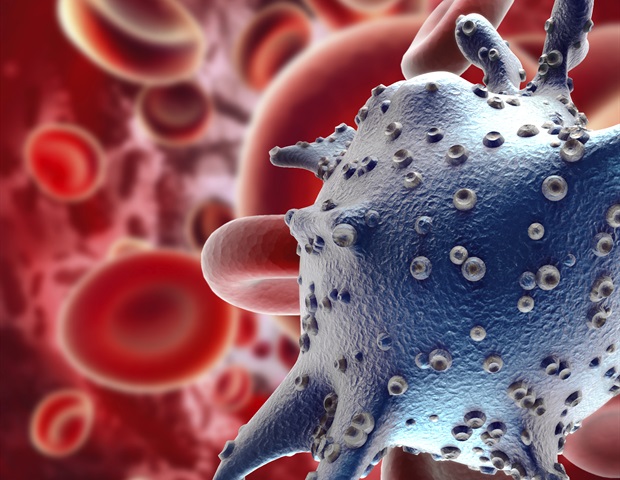
A discovery concerning the mechanisms that allow the immune system to maintain long-term safety might revolutionize therapy for persistent illness and most cancers.
Extended diseases like most cancers and persistent infections typically go away the immune system in a state of exhaustion, the place its frontline defenders – T cells – lose their capability to operate successfully. Analysis, led by the Peter Doherty Institute for An infection and Immunity (Doherty Institute) and the Peter MacCallum Most cancers Centre (Peter Mac), have recognized a uncommon sort of immune cells, referred to as stem-like T cells, that holds the important thing to sustaining highly effective, long-term immune responses.
Revealed in Science Immunology, the research revealed that the endurance of those stem-like T cells is fuelled by a protein referred to as ID3, expressed by a gene of the identical title. These ID3+ T cells have a novel capability to self-renew and resist exhaustion, giving them the ability to maintain immune responses far longer than different T cells that do not specific ID3.
The College of Melbourne’s Catarina Gago da Graça, PhD Candidate on the Doherty Institute, stated the analysis highlights how ID3+ T cells maintain the important thing to overcoming one of many largest challenges in treating persistent diseases-immune exhaustion.
ID3+ T cells have the outstanding capability to withstand burnout and preserve a strong immune response over time, making them notably efficient within the face of persistent infections or most cancers.”
Catarina Gago da Graça, PhD candidate on the Doherty Institute, co-first creator
The analysis additionally discovered that sure indicators within the physique might improve the variety of ID3+ T cells, paving the best way for improved therapies like CAR T cell remedy. Whereas CAR T remedy has been transformative in treating sure cancers, its effectiveness can wane over time because of T cell exhaustion.
Professor Ricky Johnstone, Govt Director Most cancers Analysis at Peter Mac and co-lead creator of the research, stated enhancing ID3 exercise might strengthen the endurance of those cells, making therapies more practical and long-lasting.
“We found that ID3+ T cell formation might be promoted by particular inflammatory cues, probably providing new methods to spice up the variety of immune cells that excel at preventing most cancers in sufferers,” stated Professor Johnstone.
“This might result in higher therapies for most cancers sufferers and enhance medical immunotherapy outcomes.”
The College of Melbourne’s Dr. Daniel Utzschneider, Laboratory Head on the Doherty Institute, stated the findings might result in developments in immunotherapy therapies and the event of vaccines that present long-lasting safety.
“Exhausted immune cells stay one of many largest challenges in treating persistent illnesses,” stated Dr Utzschneider.
“This analysis supplies a roadmap for the way we would reinvigorate the immune system to enhance well being outcomes for folks residing with most cancers or persistent infections like HIV or hepatitis B and C, thanks to those stem-like T cells, the immune system’s secret energy.”
This analysis is the results of a collaborative effort between the Doherty Institute, Peter Mac, La Trobe College, Northwestern College (USA), the Olivia Newton-John Most cancers Analysis Institute, the College of Birmingham (UK) and the College of Melbourne.
Supply:
Journal reference:
Gago da Graça, C., et al. (2025). Stem-like reminiscence and precursors of exhausted T cells share a standard progenitor outlined by ID3 expression. Science Immunology. doi.org/10.1126/sciimmunol.adn1945.
